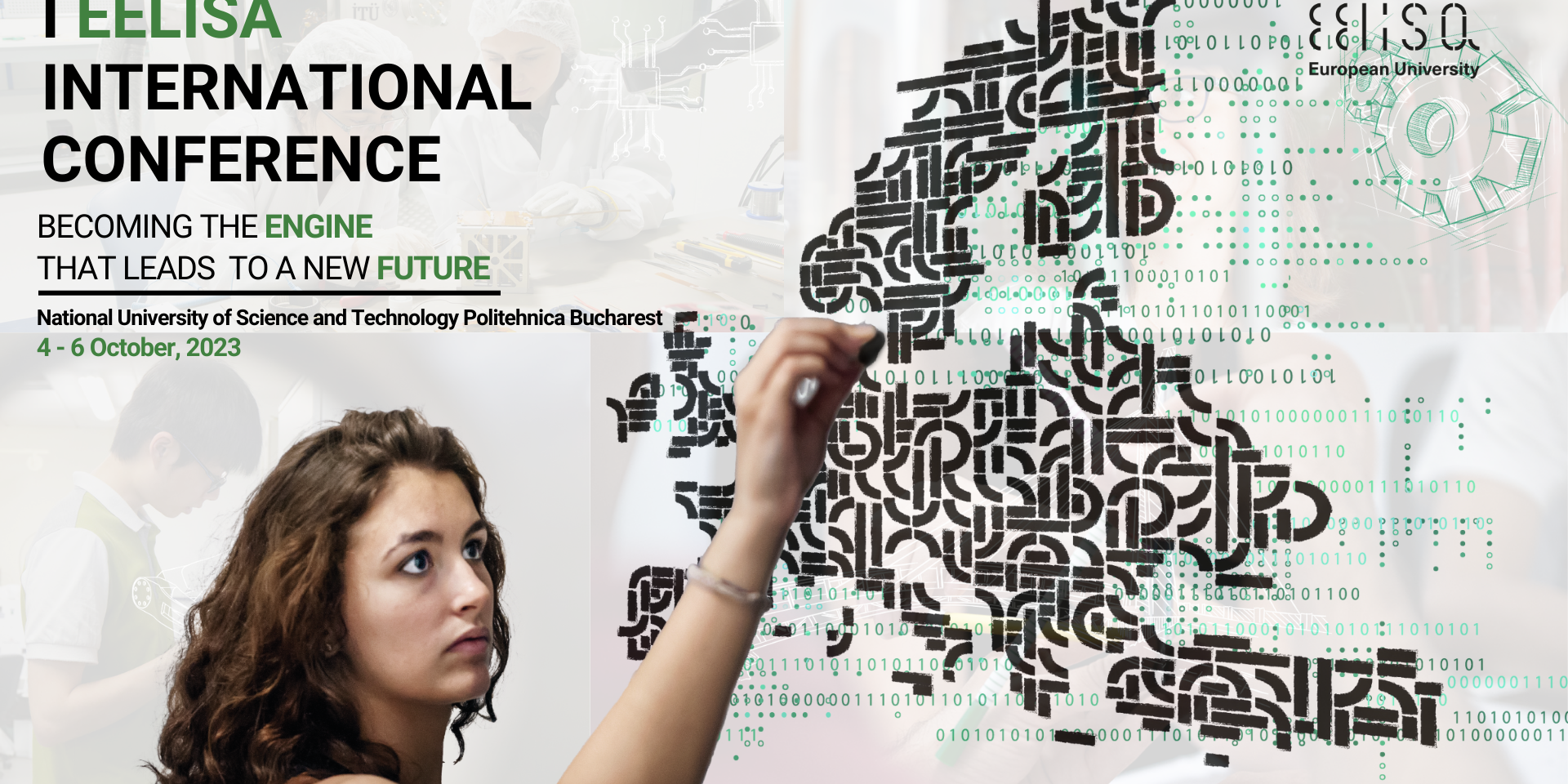EELISA is now gearing up to deliver the event that will mark the culmination of its three-year journey and simultaneously kickstart its new phase. Over two and a half days, with an anticipated attendance of over three hundred participants, the conference will encompass a diverse program of 27 sessions including panel discussions, high-level meetings, parallel sessions, and social activities.
The conference’s programme of activities draws from the open call for contributions initiated by EELISA last April and will feature over 50 prominent researchers, academics, and staff members from EELISA institutions, in addition to representatives from other European universities and international institutions. Spanning various formats and structures, the sessions will delve into eight key themes for EELISA, including the new European engineering model, the university of the future, innovative pedagogies, entrepreneurship and innovation, and forging sustainable cooperation.
These elements are carefully designed to commemorate the accomplishments of the first three years of the alliance, encourage collaboration, and cultivate a collective comprehension of the context and prospects of the next four years of EELISA.
Hosted by the oldest and most prestigious engineering school in Romania, this conference takes place shortly after the expansion of the university through a merger, thus marking the establishment of a new university with a regional coverage: ‘Universitatea Națională de Știință și Tehnologie Politehnica București (UNSTPB). “Hosting this extraordinary event has a twofold significance for our community. First, it is a celebration of achieving essential milestones in our EELISA mission. Just as important, it is the continuation of a journey in which we become more applied and much more relevant for those outside EELISA who wish to impact society for the better” emphasizes UNSTPB Rector, Mihnea Costoiu.
Two plenary sessions with high-level speakers.
What experiences have been gleaned from various alliances and stakeholders engaged in the European Universities initiative? What are its main objectives, and anticipated future trajectories? Furthermore, in what ways are alliances like EELISA contributing to the evolution of national, European, and international higher education systems? These are among the questions addressed in the inaugural plenary session entitled “EELISA’s pioneering journey and the context of the European Universities Initiative”, scheduled for 5 October. Vanessa Debiais-Sainton, Head of Higher Education Unit DG EAC, European Commission, Ligia Deca, Romanian Minister of Education, Bogdan Gruia Ivan, Romanian Minister of Research, Innovation and Digitalization, Markus González Beilfuss from the Spanish Ministry of Universities, Madlen Șerban, Secretary General, National Commission of Romania for UNESCO and representatives from alliances EU-CONEXUS and EUt+ are among the speakers of this session.
The European Green Deal and the EU Mission 100 Climate-Neutral and Smart Cities are also two pivotal topics selected for discussion in the second plenary session “The Role of European Universities Alliances in the Orchestration of the systemic changes needed to tackle climate change” (6 October). Among its panelists, we find Tudor Prisecaru, State Secretary of the Ministry of Research, Innovation, and Digitalization of Romania, Răzvan Nicolescu, Member of the Governing Board of the European Institute of Innovation and Technology (EIT), Halil Hasar, Director of Climate Change at the Ministry of Environment, Urbanization and Climate Change of Turkey, François Croquette, Director of Ecological Transition and Climate of the City of Paris and Julio Lumbreras, UPM professor and ex-Member of the EU Mission Board on Climate Neutral and Smart Cities.
- The general public will be able to follow both sessions via live streaming through the EELISA YouTube channel.
Dynamic roundtables, abstract presentations, interactive workshops, and the EELISA Diversity Award.
“Building Diverse and Inclusive Research and Innovation Communities.” This panel discussion will highlight a range of best practices in diversity and inclusion, ultimately leading to the selection of the EELISA Diversity Award offered by EELISA InnoCore, the Research & Innovation division of EELISA. The award announcement is scheduled to take place during the closing ceremony on 6 October.
EELISA students have also played an active role in the organisation of two main activities: a role-play discussion following the screening of the EELISA Special Mention award-winning documentary film “The Great Green Wall’ (Directed by Jared Scott, 2022), and an interactive panel entitled “Student Participation at all levels of the Alliance” which will invite to reflect on the role of the EELISA Students participating in the alliance and the impact it has on both their academic and life experience.
A special meeting of the EELISA Governing Board with a focus on the new phase of EELISA.
The crowning moment of the conference will be a closing session with remarks from UNSTPB Rector, followed by Guillermo Cisneros, Rector of the Universidad Politécnica de Madrid, who will share words aimed at inaugurating the new period of the alliance, also known as “EELISA 2.0”.
One day prior to this pivotal event, the Rectors, Directors, and Presidents, along with academic, staff, and student representatives from all EELISA institutions will convene to review the accomplishments of the first phase of the alliance, assessing its key milestones. They will also deliberate on the shared objectives and goals for the launch of EELISA 2.0.
For the first time, this EELISA Governing Board meeting will serve as an opportunity for the alliance to engage in dialogue with representatives of national authorities and international organizations. The aim of such dialogue will be to discuss the impact of the European Universities initiative on both national and international levels and highlight the importance of collaborative efforts in identifying challenges, thus facilitating future cross-border cooperation.
In light of this special occasion, the meeting will be open to external guests, including distinguished speakers from the plenary sessions Vanessa Debiais-Sainton, Madlen Șerban, Markus González, and Ligia Deca, among others. They will actively contribute to the discussions, alongside other notable guests such as Philippe Wieber, Micaela Ossola Revilla, and Özgür Kivanc Altan, representing the French, Spanish, and Turkish Embassies in Romania respectively.

